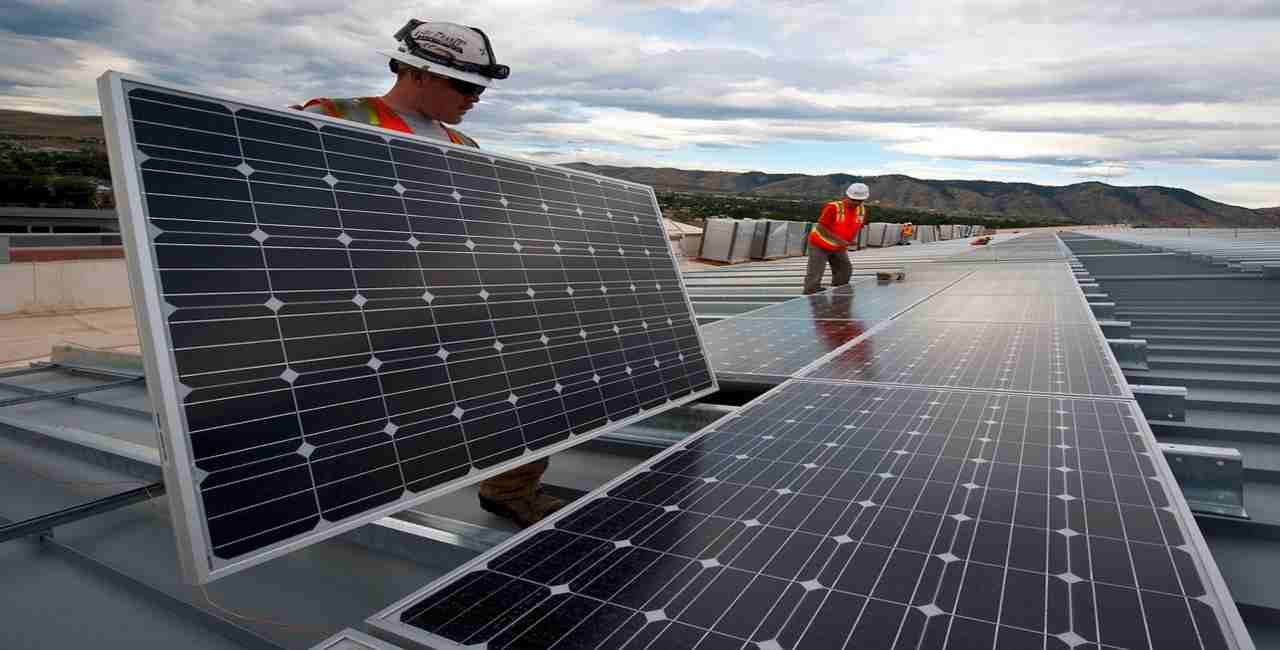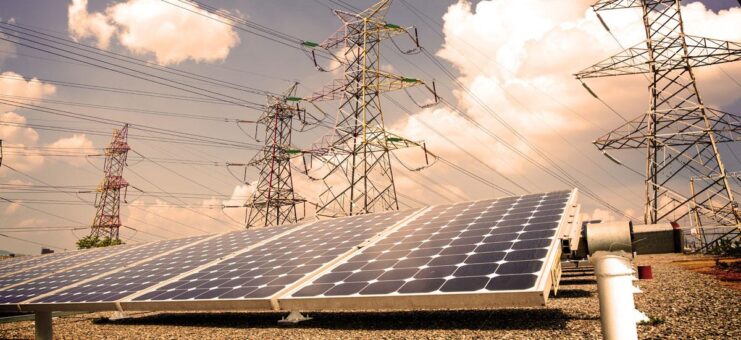Transitioning to sustainable energy sources is paramount in our current global landscape. As traditional fossil fuels continue to deplete and contribute to alarming levels of pollution and climate change, adopting sustainable alternatives such as solar, wind, hydroelectric, and geothermal power has become imperative.
These sources offer a cleaner and greener way to generate energy and reduce the harmful emissions that direly affect our planet’s health. By making this crucial shift, we can significantly reduce our carbon footprint, enhance air quality, and safeguard the Earth’s delicate ecosystems.
As we stand at a crossroads, transitioning to sustainable energy sources ensures a healthier, more prosperous future for upcoming generations. Let us discuss in detail how advancements in solar energy sustainability contributes to emission reduction. .
How Solar Energy Sustainability Contributes to Emission Reduction?

Solar energy is crucial in reducing emissions and combating climate change by offering a clean, sustainable, and renewable alternative to fossil fuels. This transition to solar power has several critical contributions to emission reduction:
- Zero Greenhouse Gas Emissions: Solar energy sustainability produces no direct greenhouse gas emissions, unlike the burning of fossil fuels such as coal, oil, and natural gas. This eliminates the release of carbon dioxide (CO2) and other toxic pollutants that contribute to global warming and air pollution.
- Reduced Air Pollution: Traditional energy sources emit pollutants such as sulfur dioxide, nitrogen oxides, and particulate matter, which harms air quality and human health. Solar energy does not produce these pollutants, improving air quality and reducing respiratory illnesses.
- Mitigating Climate Change: Solar power helps decrease the reliance on fossil fuels, the primary drivers of anthropogenic climate change. By replacing fossil fuels with solar energy for electricity generation, we can significantly reduce the carbon footprint and slow down the rate of global temperature rise.
- Energy Independence: Solar energy reduces dependence on imported fossil fuels, enhancing energy security and reducing the geopolitical tensions often associated with the oil and gas trade. This can lead to a more stable and resilient energy supply.
- Job Creation: The solar industry provides many jobs, ranging from research and development to manufacturing, installation, and maintenance. This job creation can stimulate economic growth while promoting a sustainable energy transition.
Advancements in Solar Technology and Efficiency
Over the past few decades, significant advancements in solar technology have led to increased efficiency, lower costs, and greater adoption of solar energy as a renewable and sustainable power source. Some of the critical advancements include:
- High-Efficiency Solar Cells: New types of solar cells, such as monocrystalline and multi-junction cells, have been developed with higher efficiency rates than traditional silicon cells. These advanced cells can convert a more significant portion of sunlight into electricity.
- Bifacial Solar Panels: Bifacial solar panels can capture sunlight from both sides, increasing energy generation. These panels are particularly effective in environments with reflective surfaces like snow, water, or light-coloured ground.
- Solar Tracking Systems: Solar tracking systems allow solar panels to follow the sun’s movement throughout the day, maximising their exposure to sunlight. This technology can significantly improve energy generation, especially in areas with varying solar angles.
- Thin-Film Solar Cells: Thin-film solar cells are lightweight and flexible, making them suitable for unconventional applications, such as integrating solar panels into building materials, clothing, or portable devices.
- AI and Predictive Analytics: Artificial intelligence (AI) and machine learning optimise solar system performance. These technologies can predict weather patterns, adjust solar panel angles, and manage energy flow for maximum efficiency.
The Role of Government Policies in Promoting Solar Energy

Government policies play a pivotal role in accelerating the adoption of solar energy. In the quest for a sustainable and greener energy landscape, many governments worldwide have recognized the importance of incentivizing solar power deployment. These policies encompass a range of measures, including financial incentives like tax credits and subsidies, feed-in tariffs that guarantee a fixed price for solar-generated electricity, and renewable energy mandates that require a certain percentage of energy to come from renewable sources.
Additionally, regulatory frameworks that simplify permitting and grid integration for solar installations have been instrumental. By promoting these policies, governments not only reduce the financial barriers to solar adoption but also create a favorable environment for investment and innovation. Ultimately, these initiatives not only reduce carbon emissions but also stimulate economic growth, job creation, and the development of a more sustainable and resilient energy infrastructure. Government leadership in the realm of solar energy is pivotal in paving the way toward a cleaner and more energy-independent future.
Challenges and Solutions in Solar Energy Sustainability
While solar energy has numerous benefits, it also faces some challenges, such as intermittency and energy storage limitations. Intermittent energy generation, due to factors like weather and time of day, can be addressed through improved energy storage solutions, such as advanced batteries and grid integration. Addressing these challenges is essential to ensuring a reliable and continuous supply of clean energy from solar sources.
Solar Energy in Developing Nations: Bridging the Energy Gap
Solar energy is emerging as a vital tool for bridging the energy gap in developing nations, where access to reliable electricity remains a challenge. In these regions, where traditional grid infrastructure is often lacking or unreliable, solar power offers a beacon of hope. Solar microgrids and off-grid solutions can bring much-needed electricity to remote and underserved communities, empowering them with the benefits of clean, affordable, and sustainable energy.
These solar initiatives not only improve living conditions by providing lighting, clean cooking solutions, and access to information but also stimulate economic development. Solar-powered enterprises, such as water purification and irrigation systems, enable communities to thrive independently. Moreover, by reducing reliance on fossil fuels, solar energy contributes to environmental preservation and mitigates the harmful impacts of traditional energy sources. As solar technology continues to advance, it holds the potential to transform lives and drive progress in the world’s most vulnerable regions.
The Future of Solar Energy: Innovations on the Horizon

The future of solar energy sustainability holds exciting possibilities with ongoing research and development efforts. Innovations like transparent solar panels, solar paint, and advanced energy storage technologies are on the horizon. These breakthroughs have the potential to further revolutionize the way we harness and utilize solar power, making it even more accessible and integrated into our daily lives. Stay tuned for the latest advancements in solar technology that will shape our sustainable energy future.
Empowering Future Generations Through Solar Energy Sustainability
Solar energy sustainability offers a critical route to mitigate emissions and foster energy independence. By harnessing the sun’s power, we can significantly reduce our carbon footprint and alleviate the strain on finite fossil fuel resources. Adopting solar power is a responsibility and a collective opportunity to shape a greener, more self-reliant future. You can connect with the top providers of solar products in the market and join the transformative movement towards cleaner energy solutions.

